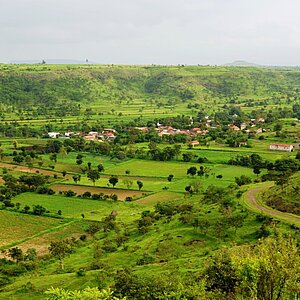Transforming food systems with an EbA approach for resilience
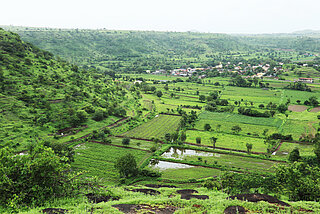
Our food systems challenged by multiple crises. An IKI-Project uses ecosystem-based adaptation as a solution approach.
The Covid-19 pandemic has shaken food systems around the globe. Lockdowns deprived millions of labourers and migrant workers of their livelihoods, and curtailed their ability to buy food. In some countries, informal food markets experienced temporary shutdowns. An estimated 130 million people may be affected by acute food insecurity related to Covid-19 impacts.
In addition to Covid-19, the climate crisis threatens food security. Climatic hazards such as prolonged droughts, floods, and storms, increase land degradation. The UN Food and Agriculture Organization (FAO) warns that we are likely to see a significant decline in the yields of major cereal crops by 2100 (ranging 20–45 per cent for maize, 5–50 per cent for wheat, and 20–30 per cent for rice), if greenhouse gases continue to be emitted at current rates.
Systemic responses to fragile food systems
The Covid-19 shock has revealed that there is a critical need to build resilient food systems that ensure food security while preserving the natural resource base in the long run. Ecosystem-based adaptation (EbA) is an example of such a systemic approach. By restoring and maintaining ecosystem services and biodiversity, EbA preserves the natural resource base, helps people adapt to climate change, and provides co-benefits such as food security.
Ecosystem-based agriculture in Guatemala and India
Research by TMG Research and partners, in the context of the Climate-SDG Integration Project and part of International Climate Initiative, investigated the link between food production and EbA in Guatemala and India.
Examples of community-based EbA initiatives include community-led seed banks for genetic crop diversity, promotion of agro-biodiversity, multi-layer farming, water and soil conservation, reforestation and agro-forestry, capacity building in ecosystem management, and direct payments to farmers for environmental conservation.
In Huehuetenango, Guatemala, EbA measures have led to a significant improvement in yields of staple food (79 per cent for maize, 62 per cent for potatoes, and 55 per cent for beans) over a period of ten years. Concurrently, annual food availability from subsistence farming increased from four to ten months, on average. During the Covid-19 related closure of informal food markets earlier this year, the improved agro-ecosystems provided farmers, especially vulnerable households, with a safety net.
Similar positive outcomes have been observed in Maharashtra, India, where the Watershed Organisation Trust has promoted ecosystem-based agriculture for over 25 years. Study participants observed steady increases in their household food availability, from an average of seven months in 2009, to around ten months in 2017. Investments in improved water management, as well as crop diversification made agricultural production systems in the semi-arid state more robust against storms, droughts, and external shocks such as Covid-19.
Enabling ecosystem-based adaptation for food security
These case studies demonstrate that an ecosystem-based approach to agriculture can contribute to building locally adapted and more resilient food systems. However, achieving the needed change, at sufficient scale, requires providing an enabling environment for farmers to invest in, and safeguard, resilient and productive agro-ecosystems.
TMG Research and partners are working towards the creation of enabling conditions for EbA through strategic alliances, and innovative ways of collaboration. In Guatemala, TMG Research together with WWF Mesoamerica and ADIMI, has set up a multi-stakeholder consortium of over 30 institutions with the joint vision of scaling EbA in Guatemala.
The work of the consortium includes, inter alia, mainstreaming EbA into existing policies; inter-institutional learning; strengthening monitoring systems; and developing financial mechanisms to support EbA action, (more information can be found here).
In India, the project implemented by TMG Research and WOTR focuses on developing an evidence-based, and demand-driven roadmap for mainstreaming EbA into sectoral policies and programmes. Entry points for integrating EbA into agriculture include promoting ecosystem-based approaches in watershed development, and governmental flagship programmes, such as the “Doubling Farmers Income” scheme.
Building back better — or forward
The impacts of Covid-19 pandemic, climatic risks, and accelerated ecological degradation, all highlight the need to address the agri-food-climate nexus. There are a number of opportunities, such as the Food Systems Summit to build momentum towards more integrated policies and programmes. However, ideas must be translated into actions that make sense for communities at the local level. After all, it is these communities who are at the frontline of the battle to build socio-economic and ecological resilience to the multiple crises of the 21st century.
The link has been copied to the clipboard
Contact
IKI Office
Zukunft – Umwelt – Gesellschaft (ZUG) gGmbH
Stresemannstraße 69-71
10963 Berlin
Follow the project on Twitter and participate in discussions on food security and Covid-19: https://twitter.com/CovidFoodFuture



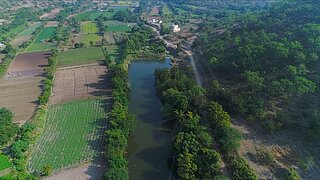
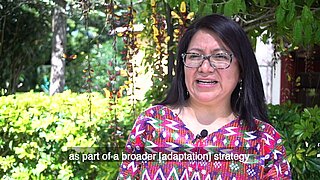
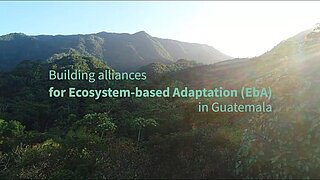

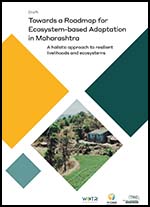
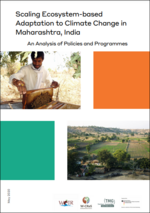
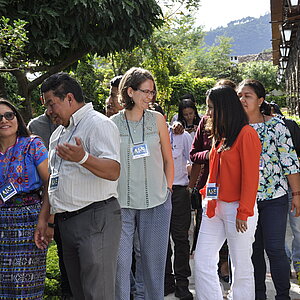
![[Translate to English:]](/fileadmin/_processed_/2/e/csm_17_II_157_Pasabien_watershed__Guatemala__5___c__El_Fassi_4d01bf06a7.jpg)
